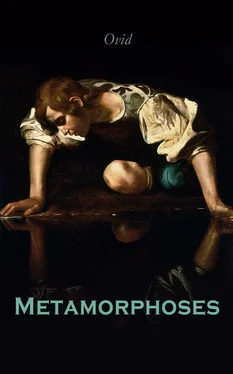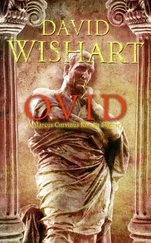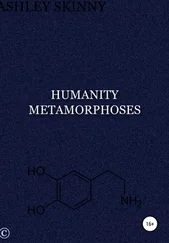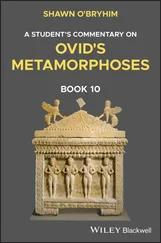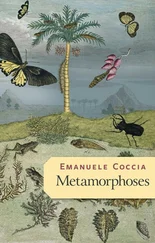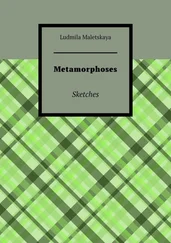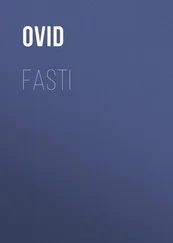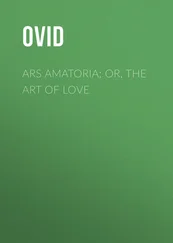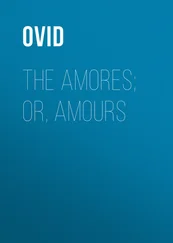Ovid - Metamorphoses
Здесь есть возможность читать онлайн «Ovid - Metamorphoses» — ознакомительный отрывок электронной книги совершенно бесплатно, а после прочтения отрывка купить полную версию. В некоторых случаях можно слушать аудио, скачать через торрент в формате fb2 и присутствует краткое содержание. Жанр: unrecognised, на английском языке. Описание произведения, (предисловие) а так же отзывы посетителей доступны на портале библиотеки ЛибКат.
- Название:Metamorphoses
- Автор:
- Жанр:
- Год:неизвестен
- ISBN:нет данных
- Рейтинг книги:3 / 5. Голосов: 1
-
Избранное:Добавить в избранное
- Отзывы:
-
Ваша оценка:
- 60
- 1
- 2
- 3
- 4
- 5
Metamorphoses: краткое содержание, описание и аннотация
Предлагаем к чтению аннотацию, описание, краткое содержание или предисловие (зависит от того, что написал сам автор книги «Metamorphoses»). Если вы не нашли необходимую информацию о книге — напишите в комментариях, мы постараемся отыскать её.
Metamorphoses — читать онлайн ознакомительный отрывок
Ниже представлен текст книги, разбитый по страницам. Система сохранения места последней прочитанной страницы, позволяет с удобством читать онлайн бесплатно книгу «Metamorphoses», без необходимости каждый раз заново искать на чём Вы остановились. Поставьте закладку, и сможете в любой момент перейти на страницу, на которой закончили чтение.
Интервал:
Закладка:
To her, at length, Epaphus 113is believed to have been born from the seed of great Jove, and throughout the cities he possesses temples joined to those of his parent. Phaëton, sprung from the Sun, was equal to him in spirit and in years; whom formerly, as he uttered great boasts, and yielded not at all to him, and proud of his father, Phœbus, the grandson of Inachus could not endure; and said, “Thou, like a madman, believest thy mother in all things, and art puffed up with the conceit of an imaginary father.”
Phaëton blushed, and in shame repressed his resentment; and he reported to his mother, Clymene, 114the reproaches of Epaphus; and said, “Mother, to grieve thee still more, I, the free, the bold youth , was silent; I am ashamed both that these reproaches can be uttered against us, and that they cannot be refuted; but do thou, if only I am born of a divine race, give me some proof of so great a descent, and claim me for heaven.” Thus he spoke, and threw his arms around the neck of his mother; and besought her, by his own head and by that of Merops, 115and by the nuptial torches of his sisters, that she would give him some token of his real father.
It is a matter of doubt whether Clymene was more moved by the entreaties of Phaëton, or by resentment at the charge made against her; and she raised both her arms to heaven, and, looking up to the light of the Sun, she said, “Son, I swear to thee, by this beam, bright with shining rays, which both hears and sees us, that thou, that thou, I say , wast begotten by this Sun, which thou beholdest; by this Sun , which governs the world. If I utter an untruth, let him deny himself to be seen by me, and let this light prove the last for my eyes. Nor will it be any prolonged trouble for thee to visit thy father’s dwelling; the abode where he arises is contiguous to our regions. 116If only thy inclination disposes thee, go forth, and thou shalt inquire of himself.”
Phaëton immediately springs forth, overjoyed, upon these words of his mother, and reaches the skies in imagination; and he passes by his own Æthiopians, and the Indians situate beneath the rays of the Sun, 117and briskly wends his way to the rising of his sire.
EXPLANATION.
To the elucidation of this narrative, already given, we will only add, that some of the mythologists inform us, that when Mercury had lulled Argus to sleep, a youth named Hierax awoke him; on which Mercury killed Argus with a stone, and turned Hierax into a spar-hawk.
1 Forms changed into new bodies. ]—Ver. 1. Some commentators cite these words as an instance of Hypallage as being used for ‘corpora mutata in novas formas,’ ‘bodies changed into new forms;’ and they fancy that there is a certain beauty in the circumstance that the proposition of a subject which treats of the changes and variations of bodies should be framed with a transposition of words. This supposition is perhaps based rather on the exuberance of a fanciful imagination than on solid grounds, as if it is an instance of Hypallage, it is most probably quite accidental; while the passage may be explained without any reference to Hypallage, as the word ‘forma’ is sometimes used to signify the thing itself; thus the words ‘formæ deorum’ and ‘ferarum’ are used to signify ‘the Gods,’ or ‘the wild beasts’ themselves.
2 Favor my attempts. ]—Ver. 3. This use of the word ‘adspirate’ is a metaphor taken from the winds, which, while they fill the ship’s sails, were properly said ‘adspirare.’ It has been remarked, with some justice, that this invocation is not sufficiently long or elaborate for a work of so grave and dignified a nature as the Metamorphoses.
3 To my own times. ]—Ver. 4. That is, to the days of Augustus Cæsar.
4 A rude and undigested mass. ]—Ver. 7. This is very similar to the words of the Scriptures, ‘And the earth was without form and void,’ Genesis, ch. i. ver. 2.
5 No Sun. ]—Ver. 10. Titan. The Sun is so called, on account of his supposed father, Hyperion, who was one of the Titans. Hyperion is thought to have been the first who, by assiduous observation, discovered the course of the Sun, Moon, and other luminaries. By them he regulated the time for the seasons, and imparted this knowledge to others. Being thus, as it were, the father of astronomy, he has been feigned by the poets to have been the father of the Sun and the Moon.
6 The Moon. ]—Ver. 11. Phœbe. The Moon is so called from the Greek φοῖβος, ‘shining,’ and as being the sister of Phœbus, Apollo, or the Sun.
7 Amphitrite. ]—Ver. 14. She was the daughter of Oceanus and Doris, and the wife of Neptune, God of the Sea. Being the Goddess of the Ocean, her name is here used to signify the ocean itself.
8 Nature. ]—Ver. 21. ‘Natura’ is a word often used by the Poet without any determinate signification, and to its operations are ascribed all those phenomena which it is found difficult or impossible to explain upon known and established principles. In the present instance it may be considered to mean the invisible agency of the Deity in reducing Chaos into a form of order and consistency. ‘Et’ is therefore here, as grammarians term it, an expositive particle; as if the Poet had said, ‘Deus sive natura,’ ‘God, or in other words, nature.’
9 The element of the vaulted heaven. ]—Ver. 26. This is a periphrasis, signifying the regions of the firmament or upper air, in which the sun and stars move; which was supposed to be of the purest fire and the source of all flame. The heavens are called ‘convex,’ from being supposed to assume the same shape as the terrestrial globe which they surround.
10 The lowermost place. ]—Ver. 31. ‘Ultima’ must not be here understood in the presence of ‘infima,’ or as signifying ‘last,’ or ‘lowest,’ in a strict philosophical sense, for that would contradict the account of the formation of the world given by Hesiod, and which is here closely followed by Ovid; indeed, it would contradict his own words,—‘Circumfluus humor coercuit solidum orbem.’ The meaning seems to be, that the waters possess the lowest place only in respect to the earth whereon we tread, and not relatively to the terrestrial globe, the supposed centre of the system, inasmuch as the external surface of the earth in some places rises considerably, and leaves the water to subside in channels.
11 Whoever of the Gods he was. ]—Ver. 32. By this expression the Poet perhaps may intend to intimate that the God who created the world was some more mighty Divinity than those who were commonly accounted Deities.
12 Are some of them swallowed up. ]—Ver. 40. He here refers to those rivers which, at some distance from their sources, disappear and continue their course under ground. Such was the stream of Arethusa, the Lycus in Asia, the Erasinus in Argolis, the Alpheus in Peloponnesus, the Arcas in Spain, and the Rhone in France. Most of these, however, after descending into the earth, appear again and discharge their waters into the sea.
13 He commanded the plains. ]—Ver. 43. The use here of the word ‘jussit,’ signifying ‘ordered,’ or ‘commanded,’ is considered as being remarkably sublime and appropriate, and serving well to express the ease wherewith an infinitely powerful Being accomplishes the most difficult works. There is the same beauty here that was long since remarked by Longinus, one of the most celebrated critics among the ancients, in the words used by Moses, ‘And God said, Let there be light, and there was light,’ Genesis, ch. i. ver. 3.
14 On the right-hand side. ]—Ver. 45. The “right hand” here refers to the northern part of the globe, and the “left hand” to the southern. He here speaks of the zones. Astronomers have divided the heavens into five parallel circles. First, the equinoctial, which lies in the middle, between the poles of the earth, and obtains its name from the equality of days and nights on the earth while the sun is in its plane. On each side are the two tropics, at the distance of 23 deg. 30 min., and described by the sun when in his greatest declination north and south, or at the summer and winter solstices. That on the north side of the equinoctial is called the tropic of Cancer, because the sun describes it when in that sign of the ecliptic; and that on the south side is, for a similar reason, called the tropic of Capricorn. Again, at the distance of 23½ degrees from the poles are two other parallels called the polar circles, either because they are near to the poles, or because, if we suppose the whole frame of the heavens to turn round on the plane of the equinoctial, these circles are marked out by the poles of the ecliptic. By means of these parallels, astronomers have divided the heavens into four zones or tracks. The whole space between the two tropics is the middle or torrid zone, which the equinoctial divides into two equal parts. On each side of this are the temperate zones, which extend from the tropics to the two polar circles. And lastly, the portions enclosed by the polar circles make up the frigid zones. As the planes of these circles produced till they reached the earth, would also impress similar parallels upon it, and divide it in the same manner as they divide the heavens, astronomers have conceived five zones upon the earth, corresponding to those in the heavens, and bounded by the same circles.
Читать дальшеИнтервал:
Закладка:
Похожие книги на «Metamorphoses»
Представляем Вашему вниманию похожие книги на «Metamorphoses» списком для выбора. Мы отобрали схожую по названию и смыслу литературу в надежде предоставить читателям больше вариантов отыскать новые, интересные, ещё непрочитанные произведения.
Обсуждение, отзывы о книге «Metamorphoses» и просто собственные мнения читателей. Оставьте ваши комментарии, напишите, что Вы думаете о произведении, его смысле или главных героях. Укажите что конкретно понравилось, а что нет, и почему Вы так считаете.
